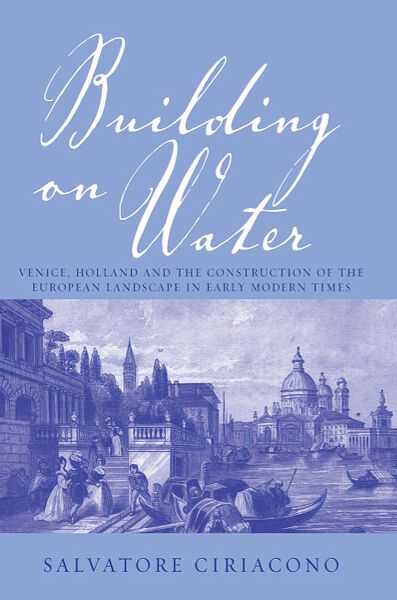
Email Newsletters
Sign up for our email newsletters to get customized updates on new Berghahn publications.
Building on Water
Venice, Holland and the Construction of the European Landscape in Early Modern Times
Salvator Ciriacono
Translated from the Italian by Jeremy Scott
272 pages, 3 tables, 5 Maps
ISBN 978-1-84545-065-6 $135.00/£104.00 / Hb / Published (May 2006)
Reviews
“…this translation makes the history of Venetian hydraulic management, which is far less known than the Dutch case, accessible to a wider audience. That is by no means a minor achievement, and should make this book worthwhile to anyone with an interest in early modern agriculture and water management.” • American Historical Review
Description
A fundamental natural resource, water and its use not only reflect "modes of production" but also that complex interplay between resources and their exploitation (and domination) by various social agents, who in their turn are inevitably influenced by the abundance or rarity of water supplies. Focusing on scientific, social and economic issues from the 16th to the 19th century, the author, one of Italy's leading historians in this field, looks at the innumerable conflicts that arose over water resources and the environmental impact of projects intended to control them. Venice and Holland are undoubtedly the two most fascinating cases of societies "built on water," with the conquest of vast expanses of marshland - either inland or on the coast (the Dutch polders or the Venetian lagoon) – not only stimulating agricultural production, but also nurturing a deeply-felt relationship between the local populations and the element of water itself. The author rounds off his study by looking at the influence the hydraulic technology developed in Holland would have on many European countries (France, England and Germany in particular) and at questions raised by contemporaries about the environmental impact of agricultural progress and its effects upon the social-economic equilibria within the communities concerned.
Salvatore Ciriacono teaches Modern History at the University of Padua. He was fellow several times by the Max-Planck Institut für Geschichte in Göttingen (Germany) and visiting Professor in Paris (Maison des Sciences de l'Homme), Boston University and Tokyo-Komaba. Taught at the Conservatoire des Arts et Métiers in Paris. He is author of La rivoluzione industriale. Dalla protoindustrializzazione alla produzione flessibile (Milan 2000) and editor of Eau et développement dans l'Europe moderne (Paris 2004) and Land Drainage and Irrigation (London 1998).
